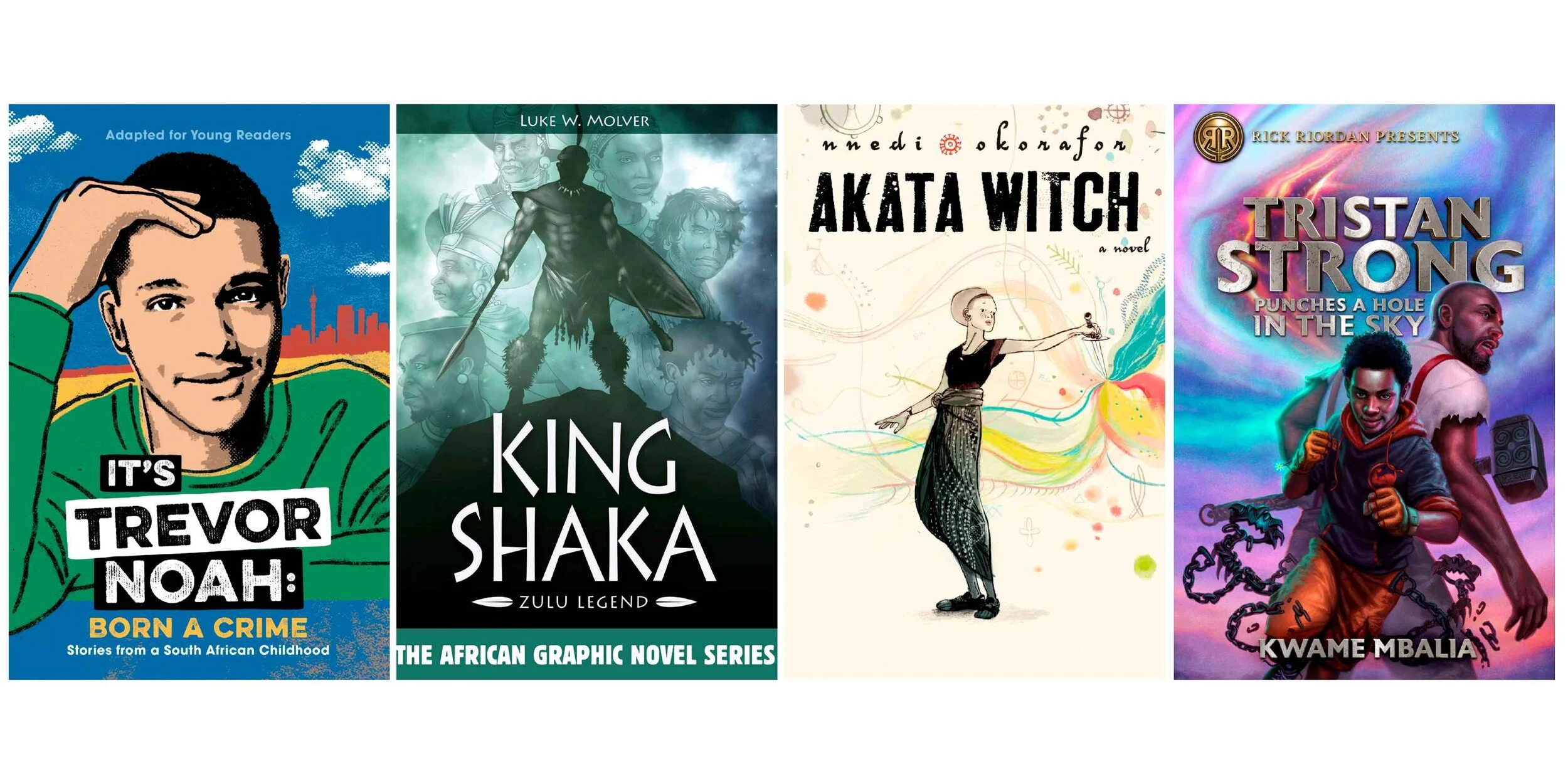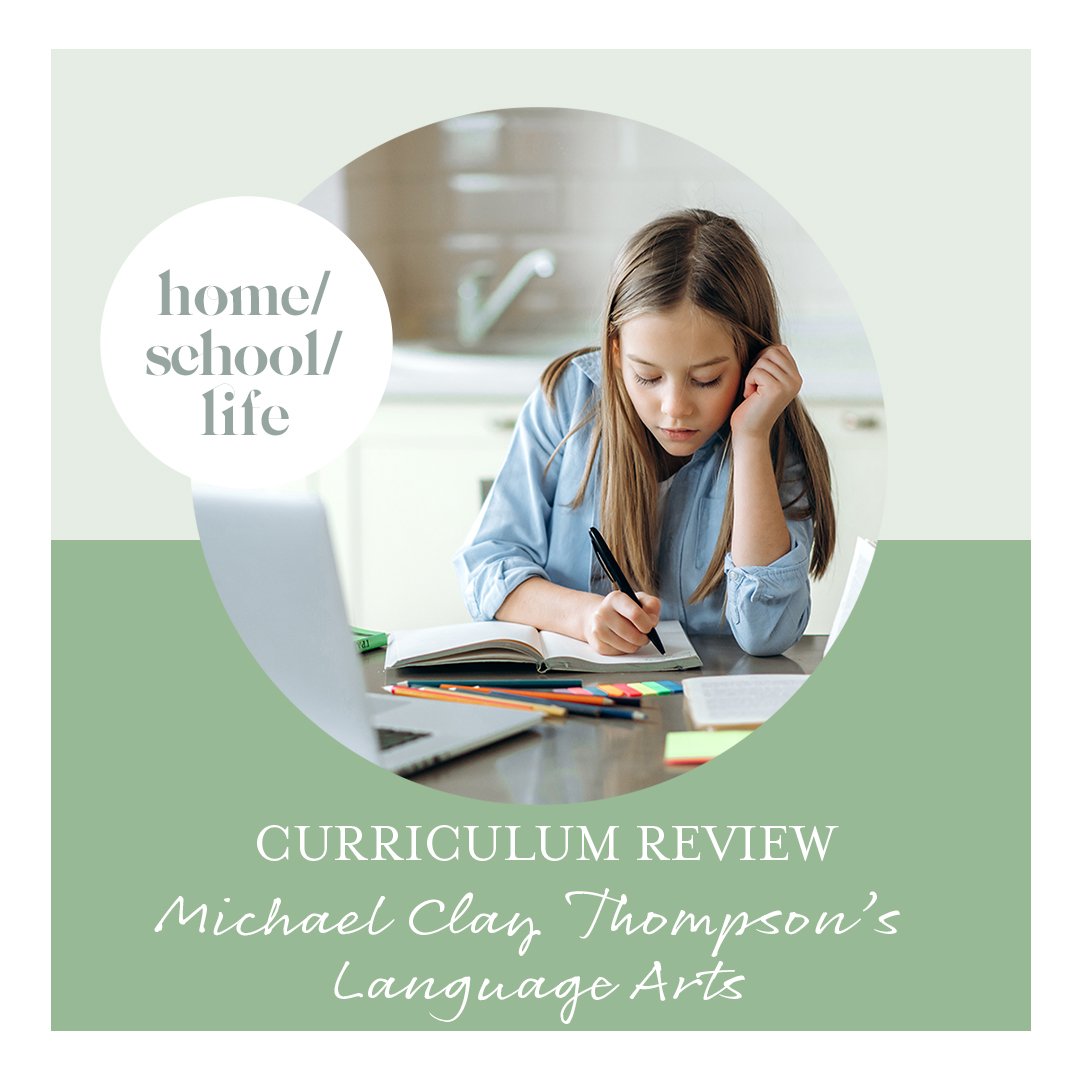Amy’s 8th Grade Reading List
In our history cycle, 8th grade is all about Africa’s history and literature — plus some physics for fun.
This reading list follows our very non-traditional history rotation, which means the focus is on African history and literature. For this year, I’d definitely assign a history or science research paper that would let kids practice putting all their research, critical thinking, and writing skills together in one big project, and we’d be working a lot on taking notes and test-driving systems to manage long deadlines effectively. If I could, I’d plan a field trip to the Smithsonian’s National Museum of African Art. (I’d also work in this little lesson on Ghana’s children’s music from Folkways.)
Summer Reading
I try to use summer reading to “bridge the gap” between the previous year and the upcoming one, so in this case, I’m looking for connections between U.S. history and Africa.
Tristan Strong Punches a Hole in the Sky
I mean, I love this book, so I would take any opportunity to recommend it, but it slides very beautifully into this gap: New Yorker Tristan discovers he’s a Storyteller with a connection to the very real world of African myth and folklore.
African History/African Literature
Spine: Africa Counts: Numbers and Patterns in African Cultures (This is a fascinating look at mathematical thinking among sub-Saharan people, and it gives you a cool context for critical reading.)
Africa Is Not a Country
This is a little outdated and skews a little young, but I think it makes a good starting point to start thinking about “Africa” the way we think about “Europe:” as one big, diverse group of countries that get lumped together because of their similarities but that are definitely not interchangeable.
Seven Natural Wonders of Africa
This is a fun way to bring a little geography in.
Early Art and Architecture of Africa
I feel like you need one coffee table art book if you’re combining literature and history for humanities — and I like that this one includes architecture and focuses on seven specific regions.
Dinosaurs, Diamonds, and Democracy: A Short, Short History of South Africa
This isn’t a perfect book, but it’s a nice condensed look at the history of South Africa from prehistory to post-apartheid. I find it handy for setting the scale of African studies.
Akata Witch
This is way more than the Nigerian Harry Potter, but come on, didn’t I have you at “Nigerian Harry Potter?” Sunny returns home from the United States to Aba, Nigeria, where she discovers that she is one of the magical Leopard People.
A Long Walk to Water
I tried to avoid “sad books” for this unit because I don’t want my kids to associate African literature with sadness — there’s a lot of fun, funny African writing! But I did add this one to the list because I think the intersecting stories of two Sudanese children from different time periods manages to be both important and hopeful.
Zahrah the Windseeker
Speculative fiction from a uniquely African perspective — I really enjoyed this one.
The Royal Kingdoms of Ghana, Mali, and Songhay: Life in Medieval Africa
I don’t know about you, but I never learned about medieval Africa in school — and it’s so interesting! Usually we start where this book ends, with the introduction of the slave trade, but this book digs into the history of three of West Africa’s significant and sophisticated kingdoms.
Nzingha: Warrior Queen of Matamba, Angola, Africa, 1595
This book isn’t perfect, but I like it because it’s based on a real woman, the leader of the Mbundu people of Angola in the late 1500s and because it tackles a real historical problem: Nzingha fights to keep the Portuguese out of Africa because she believes their kind of slavery is wrong. This is a great conversation starter for talking about how European slavery in the 16th century became racist in a way that made it different from other forms of slavery.
King Shaka: Zulu Legend
Shaka may be southern Africa’s most famous 19th century ruler, and this graphic novel tells the story of how he consolidated his power, partly through an alliance with white colonists near the Port of Natal. There is a lot of complicated stuff happening with Shaka and his brother and the Zulu people, so it might be a good idea to read an overview of the actual history before you dive into this one.
Sundiata: Lion King of Mali
Think of this as the Iliad or Gilgamesh for 13th century Mali — the full text might be a bit much for a middle schooler to tackle, but this picture book is an excellent introduction.
Indaba My Children
This collection tells the story of life for the Bantu people (of west and central Africa) from the time of the Phoenicians to the present, so it’s a great mix of literature, history, and philosophy.
In Our Village: Kambi ya Simba Through the Eyes of Its Youth
I love that this book of photos and essays was actually created by kids in a Tanzanian village.
Once Upon a Time in Ghana
I kind of love how this book is both a collection of traditional Ewe stories and a study of cultural storytelling. (I’d save this one until about mid-year, when you feel like you have an understanding of a few different African cultures to ground your reading.)
Talking Drums
This is a nice collection of traditional and modern African poetry from several different countries.
Abina and the Important Men: A Graphic History
Did you know that in 1876, an enslaved West African woman took her “owner” to court after she escaped into free territory? I sure didn’t! This graphic novel is an interesting look at Africa’s Gold Coast at the height of 19th century imperialism.
It's Trevor Noah: Born a Crime: Stories from a South African Childhood
Comedian Trevor Noah tells the story of growing up in South Africa as the child of white European dad and a Black South African mom — an illegal union that made him an illegal kid in the racist apartheid government of the time. Noah is often hilarious, which makes this book’s tough subject go down a little easier. (You could definitely sub the adult version of this book — it just has more swearing and more details about Noah’s time in jail.)
The Boy Who Harnessed the Wind
This true story about a Malawi boy who built a windmill for his village is both a great look at modern life in one section of Africa and an inspiring story about ingenuity and determination. (Read this when you’re studying electricity in physics!)
So Long a Letter
Abandoned wife Ramatoulaye expresses her frustration at Senegal's sexist legal system in a long letter to her friend in this book, which was written during the very early days of Senegal's feminist movement.
Cry, the Beloved Country
This is probably the most challenging book on the list, but if you’ve got a confident reader, it’s an amazing read. Feel free to save it for another year if it seems like too much right now — it’s worth waiting for.
Physics
Spine: Junk Drawer Physics: 50 Awesome Experiments That Don’t Cost a Thing
Spine: Newton at the Center (with the Student Quest Guide)
Thing Explainer
This is such a funny book that uses the simplest words possible to explain complicated things — for instance, helium becomes “funny voice air.”
The Way Things Work Now
A classic!
Basher Science: Physics
My kids love these cartoon-y, information-packed subject introductions.
Fatal Forces
This Horrible Science book makes gravity and the other forces of nature irresistibly interesting.
The Manga Guide to Electricity
You’ll learn lots abut how electricity works in this entertaining story of an average high school student from the land of electricity who has to make up her flunked electricity exam with summer school on Earth.
The Age of Miracles
A fictional take on a big science question: What would happen if the laws of physics on our planet changed?
Death by Black Hole: And Other Cosmic Quandaries
This essay collection by Neil deGrasse Tyson breaks down lots of complicated astrophysics ideas into totally understandable bites. For me, this is the fun part of physics, so I like to spend a lot of time with it.
(We’re Amazon affiliates, so if you purchase something through an Amazon link, we may receive a small percentage of the sale. Obviously this doesn’t influence what we recommend, and we link to places other than Amazon.)





























AMY SHARONY is the founder and editor-in-chief of home | school | life magazine. She's a pretty nice person until someone starts pluralizing things with apostrophes, but then all bets are off.